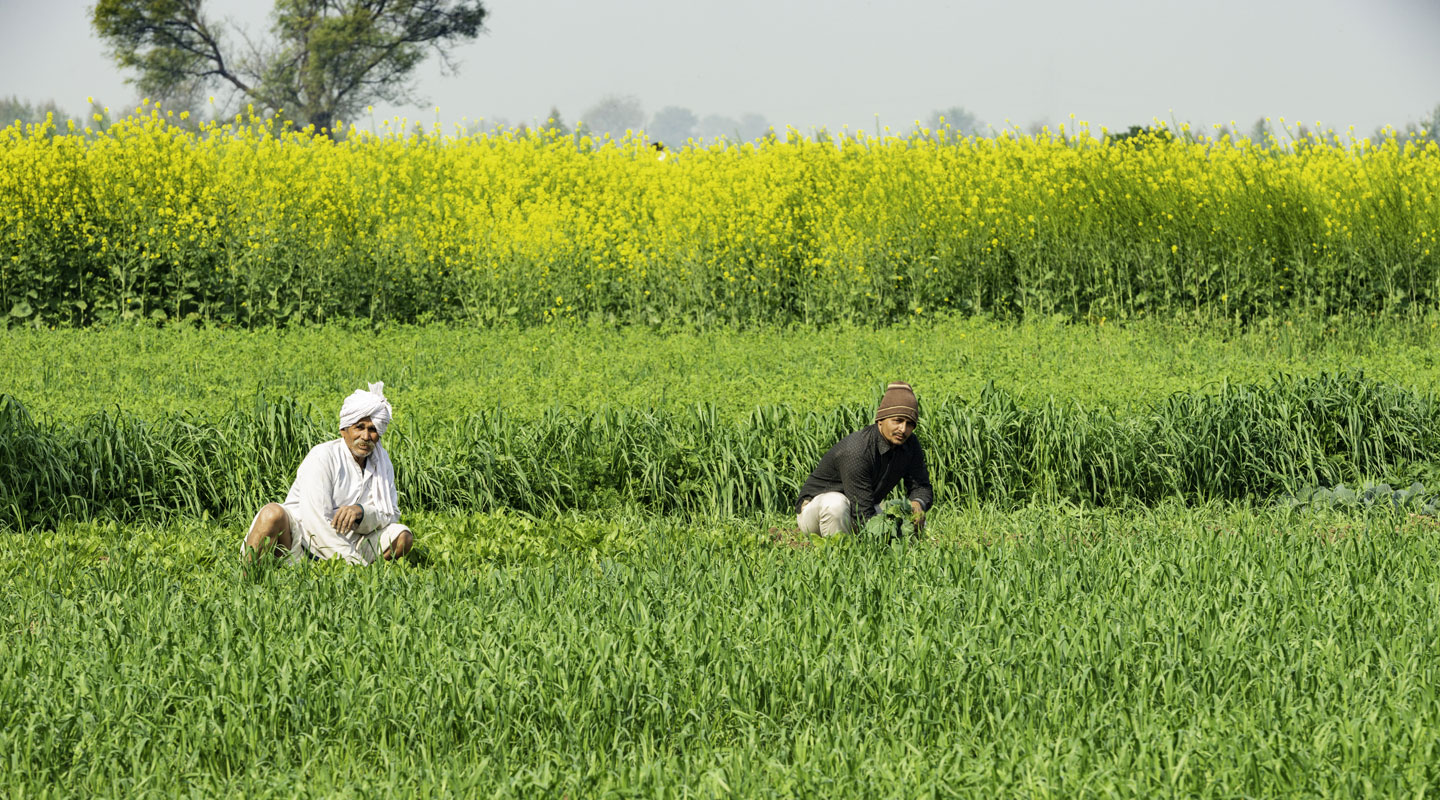Environment, Health, and Safety (EHS) sustainability is a key agenda for the Company. Jindal Stainless has undertaken numerous initiatives to realize improvements in these areas. Driven by an integrated 'Quality, Environmental, Occupational Health and Safety' Policy, Jindal Stainless is today marching towards benchmarking its processes in the field of quality, safety, health, and environment. The Company has demonstrated this by implementing Environmental Management System (EMS) & OHSAS Systems.
Jindal Stainless focuses on the areas of behavioural safety, process safety and ergonomic and general safety. Focused campaigns have been carried out in the areas of gas safety, material handling and road safety.
The Company’s plants comply with all norms set up by the competent authorities for a clean and safe environment. The Company undertakes regular checks/inspections including certification for the maintenance of the environment. The Company has adequate effluent treatment plants to control pollution.
Environment
In its pursuit of environmental sustainability alongside its business development, Jindal Stainless has setup norms beyond the statutory requirements, and has put into place systems and processes to continuously monitor the effectiveness of such initiatives. The Company goes beyond mere compliance legislation to create a healthy environment both within and outside plants; manufacturing stainless steel without adversely impacting the environment.
The Company has set up state-of-the-art 'Centre for Environmental Excellence' with sophisticated and well-equipped R&D. Efficient use of resources is practiced to make processes environmentally sound and technically competent. The operations are dependent on the use of natural resources and have consequently incorporated energy management into its ISO 9001; Quality Management Systems (QMS) and Total Productive Maintenance (TPM) initiatives.
Thrust has been laid towards enhancing resource efficiency in operations, especially for key resources such as energy and water. Additionally, the philosophy of the '3-R' (reduce, reuse and recycle) is being implemented for all types of wastes towards prevention of pollution. Jindal Stainless has its work practices aligned with international ISO 45001 and ISO 14001. Moreover, the Company continues its efforts such as tree plantation, maintenance of green belts and gardens in and around our manufacturing units, vermi-compost of waste and its use as manure, recycling of treated water in cooling water system and in horticulture activities, etc.

Some other steps taken up by the Company are:
1.
Air emissions at plants are treated with state-of-the-art facilities like Dust Extraction Systems, Electrostatic Precipitators, bag filters, Ventury, dry fog system, low NOX burners, etc. Housekeeping is maintained by developing concrete/tar roads and using pneumatic vacuum road sweepers, water sprinkling through tankers, rotating water sprinklers, dedicated housekeeping crew, etc.
2.
Each plant has its own separate effluent treatment plants (ETP) that follows specified norms by State Pollution Control Boards. Treated waste water is reused for various purposes viz., hot slab/coil cooling, slag quenching, dilution water, ash slurry making, road washing, shop floor washing, fire fighting, horticulture, gardening, etc.
3.
Sewage Treatment Plant has been installed to treat domestic waste water and meet the specified norms of State Pollution Control Boards. Domestic waste water in project areas is treated in soak pits. After treatment, this water is reused.
4.
100% fly ash is utilized for filling in low lying areas or abandoned laterite quarries, after obtaining prior approval from State Pollution Control Boards and concerned authorities, in an environmental friendly manner. Such sites, once a degraded land, have now turned been development in the form of educational institutions, parade ground, play ground, truck parking, school, real estate, etc.
5.
Waste segregation is done at source.
6.
Proper measures are undertaken to collect, segregate, storing, and disposing of all type of waste at designated locations.
7.
Slag is stock piled in a systematic manner at designated storage sites.
8.
Process dusts are recycled in the process in the form of briquettes.
9.
No hazardous waste is presently generated from our plants.
10.
Used oil is being stored at designated locations and is sold to registered recyclers.
11.
Regular tree plantation drives are taken up at all plant locations. An extensive green landscape with lakhs of forest tree species are planted in and around the complexes.
12.
To conserve water and also tap rain water, roof top water harvesting is promoted by the Company.
13.
Organic Farming is promoted in over 24 villages in Hisar. The project motivates farmers to grow, eat and sell organic food and reduce the use of fertilizers in farming.
14.
Carbon Mitigation strategies - The Companies have done great work in this field and it is being acknowledged by various agencies to include the UN
Health
Jindal Stainless prioritizes the health of its people and is equipped to provide medical assistance when needed. The Company is managing hospitals with state-of-the-art facilities in Hisar, Haryana that caters to the complete health requirement of employees, their family members, and also of the larger community of Hisar and its adjoining areas. The Company has setup OHCs (Occupational Health Centers) at its plants to meet the requirements of occupational health of employees and takes up several other initiatives on a regular basis to ensure sound health in the community.
The OHCs are fully-equipped to provide basic diagnostic and therapeutic treatment, with necessary facilities including 4 ambulances, pharmacists, etc., and are manned by qualified occupational health specialists. Special tests are also conducted before allowing workers to operate cranes and other heavy equipments operators. First Aid Boxes are maintained at various locations. Regular First Aid Trainings are imparted to employees to act in case of need. Crèches are also available for female workers. Daily health check-ups are also catered to various nearby villages by deploying a dedicated doctor and ambulance.
Integrated Health Care programs have been designed to address both preventive and curative health issues. Interventions are carried out through the 580-bedded super-specialty hospital in Hisar, Health Centre, Mobile Health Van, Awareness Generation Programs, HIV/AIDS intervention, ‘Save the Girl Child’ Program, Awareness Programs on Cancer and Drug Abuse. All these initiatives aim at providing quality healthcare services and also work on preventive care by creating awareness in the community on various diseases.
The N C Jindal Hospital in Hisar, managed by Jindal Stainless, treats almost lakhs of OPD patients & 38,000 Indoor patients every year, with subsidized treatment to those who are from economically weaker sections of the society. Community healthcare centers in Jajpur reach out to the rural population of the district. In a year, the centre caters to a population of 6000 people, while its dental department caters to 2400 patients.
Mobile health care units in vans reach out to over a hundred villages in Jajpur and Hisar with little or no access to healthcare facilities. In a year, nearly 12,000 patients receive treatment and avail health care facilities through these units.
Specific programs have been designed to counter issues like HIV/AIDS and female feticide, create awareness, and closely monitor stakeholders like married women, young mothers, and many others. Workplace awareness on HIV/AIDS is being implemented in both Hisar and Jajpur plant locations.

Safety
Jindal Stainless has employed a three-tier committee system to ensure safety at workplace: at the site level committee, shop floor level committee and apex management committee. A fully-fledged EHS department comprising experienced Chief Safety Officer, safety officers, fire officers, plant specific safety champions, and safety stewards, coupled with area-wise safety responsibility matrix, has been constituted to devise world-class systems and procedures for ensuring a safe workplace.
As an integral part of our EHS system, various measures are taken up by the Company- HAZOP studies, safety induction and refreshment trainings, work permit system, use of periodically tested and certified lifting tools and tackles, job safety analysis (JSA), tool box training, adherence to Personal Protective Equipments (PPE), daily safety inspections, internal joint audits, external safety audits, equipment and process safety audits, suggestion schemes, contests, periodical health check-ups, regular performance
review and correction actions, rewards and recognition, punitive actions, etc., are religiously followed towards eliminating hazards and achieving accident prevention at first instance.
To facilitate better safety on road, entry of vehicles is strictly prohibited inside the premises. The wide road network at plant locations is made of tar, with proper lighting at all places and times, thus enabling smooth traffic movement. Many traffic barriers, convex mirrors, traffic guard posts, hoardings on safety, caution boards, signages, etc. have been placed all along the roads.
Photo Identify cards are issued to the workers only after fulfilling HR related statutory provisions, pre-employment health check-ups, safety induction training, and subsequent refresher trainings at Company’s Safety Training Centres.
Safety Promotions
Safety Training Centres (STC), well-equipped with LCD, VCD, PC, audio system, training modules, safety library, safety videos on various topics, and sitting capacity of 100 persons are established to impart audio-visual aided induction and job specific safety trainings to workers daily.
Various safety promotion campaigns and awareness drives are undertaken at regular intervals to instil among employees a sense of responsibility towards ensuring a culture of safety.
Emergency Preparedness
On-site emergency plan has been duly approved by Directorate of Factories and Boilers, which is circulated and communicated to all concerned persons. Mock drills are conducted at various locations of the plants as per approved plan once in every month. Corrective actions are undertaken for any shortcomings assessed. Assembly points and ambulance points are also displayed widely. Mutual Aid Scheme is also in place with neighboring industries.
An Emergency Control Room (ECR), equipped with all required facilities such as a dedicated land phone, mobile phones, wind sack, display of emergency command structure and emergency numbers, required PPEs, round the clock manning, fire emergency and rescue tools, BA apparatus, fire extinguishers, fire tenders, emergency siren, PA system, etc. has been earmarked to monitor an emergency situation.
All operating plants are safeguarded with substantial fire pumps, multi-location hydrant lines, points, monitors, hose boxes, portable fire extinguishers, fire buckets, smoke detectors, alarm systems, etc. Fire fighting and rescue training programs are conducted regularly, thus ensuring ready availability of first respondents at incident site itself.

